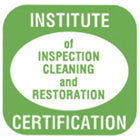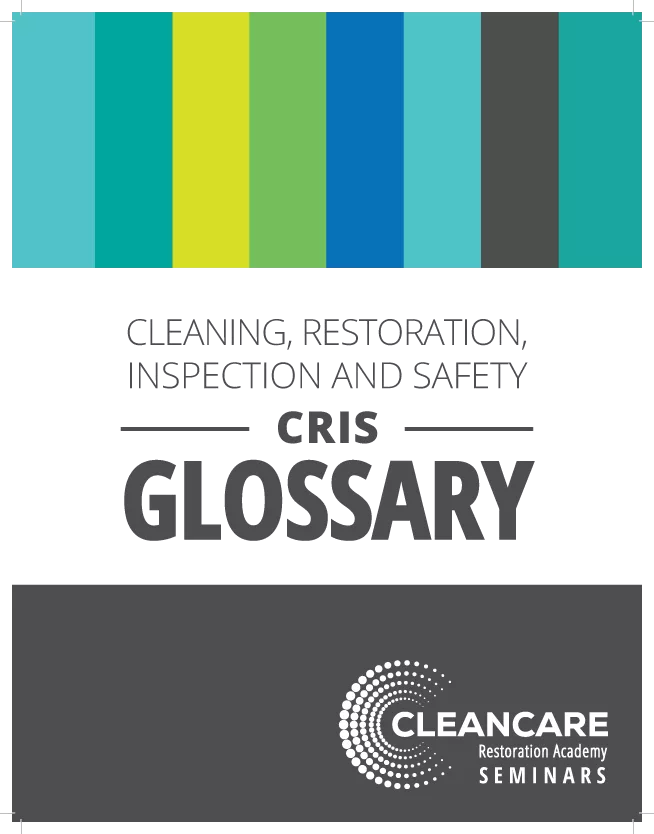The Latest and Greatest from IICRC

During a meeting of the IICRC board of directors in Florida following the Connections Conference and Exhibition, two new schools and six new instructors were approved to teach restoration- related certification classes. The board also approved the addition of restoration categories for four existing schools and six current instructors. These approvals are expected to increase the availability of IICRC certification classes.
The board also received updates on the development of a new certification category in the specialized field of sewage remediation. It is hoped the course materials and exams will be ready later this year to consider for approval and instruction as a new certification category.Two of the current restoration certification exams, water damage restoration and fire and smoke restoration, are currently being reviewed and updated so that they remain current with the latest practices and technology.
The IICRC Standards Committee reports that the next edition of the IICRC S520 Standard and Reference Guide for Professional Mold Remediation continues to move through the ANSI approval process, and is expected to be published and available to the industry very soon. The revisions and improvements are significant, and everyone is looking forward to the completion of this document.
The S100 Carpet Cleaning Standard is also in the early stages of revision, as is the Inspectors Reference Guide. All IICRC standards and guidelines are “living documents” that are periodically revised and updated to ensure they represent the most current information in the industry.
The Water Damage Restoration Certification (WRT) continues to be the most popular and well-attended of all IICRC training classes, followed by Carpet Cleaning Technician (CCT). Both of these courses, along with Upholstery Cleaning Technician (UFT) and Carpet Repair and Reinstallation Technician (RRT), serve as base classes that form the foundation other specialized or advanced classes are built on. These base classes also serve as prerequisites for several other, more specialized, IICRC classes. When planning to take specialized or advanced IICRC certification classes, such as Applied Microbial Remediation Technician (AMRT), Applied Structural Drying (ASD), Rug Cleaning Technician (RCT), or Senior Carpet Inspector (SCI), make sure you know what prerequisite classes are required, and have them completed before enrolling in the specialty or advanced class. IICRC policy requires that appropriate prerequisite certification exams be taken prior to sitting for the advanced certifications listed here.
IICRC continues to reach out to industry organizations and related groups in an effort to improve communication. IICRC representatives recently attended the Connections Conference; the Crawford Connections Conference; the DRC Conference; the ServPro Convention and other restoration-related events. IICRC also recently sponsored a very-well-attended special workshop for representatives of carpet mills in Dalton, Ga. Future events include the Stanley Steemer Convention, the ServiceMaster Convention and the Connections Convention.
Many major insurance companies have been contacted directly by the IICRC and been provided with copies of IICRC standards for their reference. The goal is to open and maintain the channels of communication and cooperation between the restoration industry in general and related groups with various special interests, and to fulfill the IICRC mission of “Being the leading, independent, non-profit, certification and International Standard setting body within the cleaning, inspection, and restoration industry; to set and promote high ethical standards, and to advance communication, collaboration and technical proficiency.
Further, the Institute acts as a central conduit in the exchange of information between all segments of the cleaning, inspection and restoration industries. The Institute cooperates with all segments of these industries, in whatever prudent, legal, ethical, and financial means reasonable, in order to enhance product quality, value and service to the consumer.
In addition to the primary activities within these industries, the Institute pro-actively disseminates information to maintain industry-wide, productive, logical and fair recommendations for the protection of the consumer, industry workers and the environment. The Institute continues to promote the science of cleaning and restoration.”
Looking for a reprint of this article?
From high-res PDFs to custom plaques, order your copy today!



